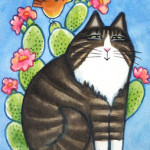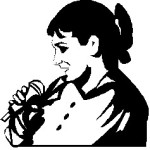As a writing teacher, I get asked quite a bit about that most elusive of qualities: writing voice. Many want to know what it is and a few even get confused on what it isn’t.
Writing Tip for Today: Let’s take a look at what writing voice is and isn’t:
What Writing Voice IS.
According to Donald Maass in Writing the Breakout Novel, editors are always looking for “not only a unique way of putting words together, but a unique sensibility, a distinctive way of looking at the world, an outlook that enriches an author’s oeuvre.” Maass suggests that to develop your writing voice, you need to allow your subconscious to work. I do this by engaging in activities that already have muscle memory: gardening, washing dishes, vacuuming the rugs. As I work, I daydream. And many times characters present themselves or situations arise or I’m asking myself, “What if?”
What Writing Voice Isn’t.
Voice is NOT imitating another writer (although you may do so as practice–just realize it’s practice. When I was in art school painting or drawing classes we were often required to imitate a style–cubism, for example or a great artist. I loved Modigliani. But I quickly realized that by imitating the greats, it helped me gain not only skill but also helped my own artistic voice to develop.
What Writing Voice Should Be.
William Zinsser, in On Writing Well, writes, “My commodity as a writer . . . is me. And your commodity is you. Don’t alter your voice to fit the subject. Develop one voice that readers recognize when they hear it on the page.” How do you do this? By combining the rigors of writing a LOT and reading A LOT. The first book you finish may not contain the true essence of your writing voice–after all, you’re just getting started. Go ahead and finish that first one–maybe even try to get it published. But for all except the rarest of writers, the voice will be muted or underdeveloped in that first endeavor. Write another novel immediately and don’t stop until someone reading your stuff meets the same person again and again. As Maass says in Writing 21st Century Fiction, “Let yourself loose. The more singular you become on the page, the more your readers will see themselves there too.”





